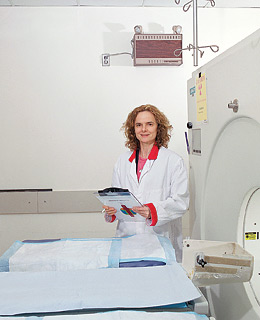
Nora Volkow
If you were to give me a drug right now like heroin, crystal meth or speed I wouldn't have any idea where I would wind up. In four hours I would have just as good a chance of being in a crack hotel in Denver as I would of being here. That's what addiction is. It always starts out as fun—until it becomes something else.
Addicts talk a lot about dope sickness, but what they mean when they say that is what it feels like to be without dope. It's the sensation of withdrawal that starts in the night hours of the day you run out of drugs. By the next morning you're in bed sweating; you can't even move your feet. There's another kind of dope sickness, however: the disease that is addiction itself. Even now, many people think of drug addiction as a failure of will, of self-control, of character. Dr. Nora Volkow, director of the National Institute of Drug Abuse, put an end to that idea when she showed for the first time that drugs change the brain, and that these changes are an important part of what makes addictions so difficult to break.
Based on this work, Dr. Volkow, 51, is convinced that better treatments for addiction will come from looking beyond just the reward circuit in the brain; she is learning how patterns of addictive behavior are connected to such basic functions as eating, memory, the very ability to feel peaceful and satisfied. My system is in remission now. Everyone has to reach a bottom, and I reached it. Perhaps in the future the work of Dr. Volkow and others will lead to even better routes to getting well. And it might even help prevent potential addicts from getting sick in the first place.
Sizemore appeared in the film Saving Private Ryan